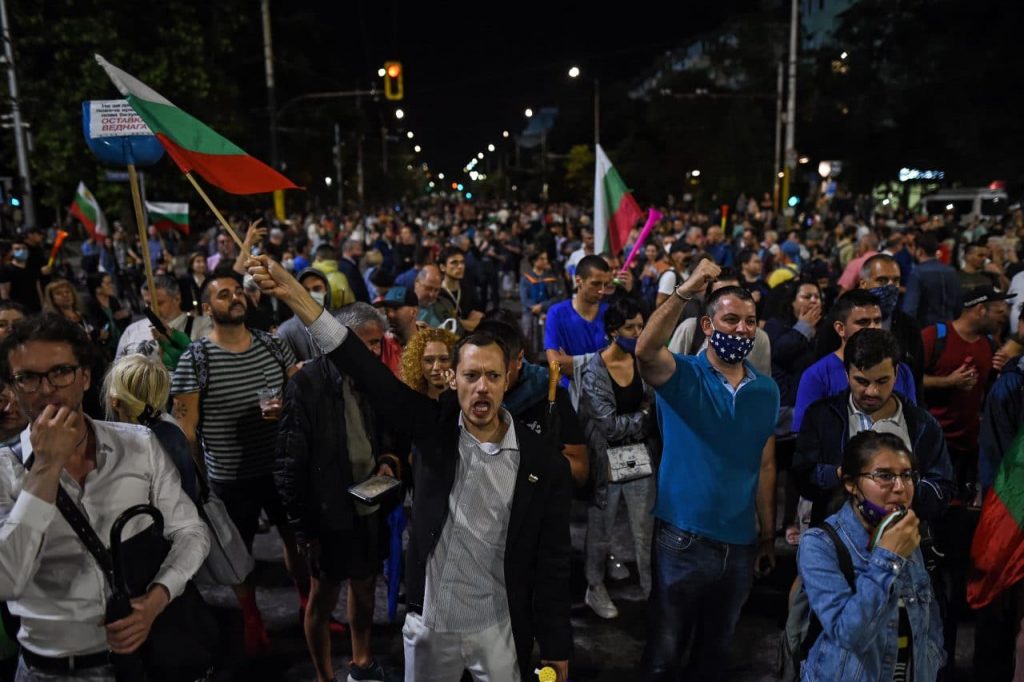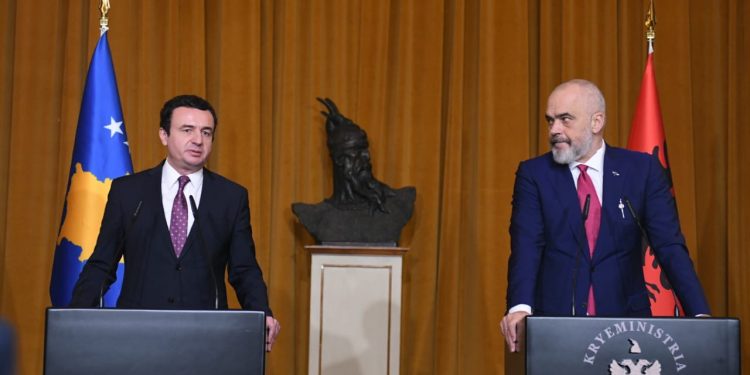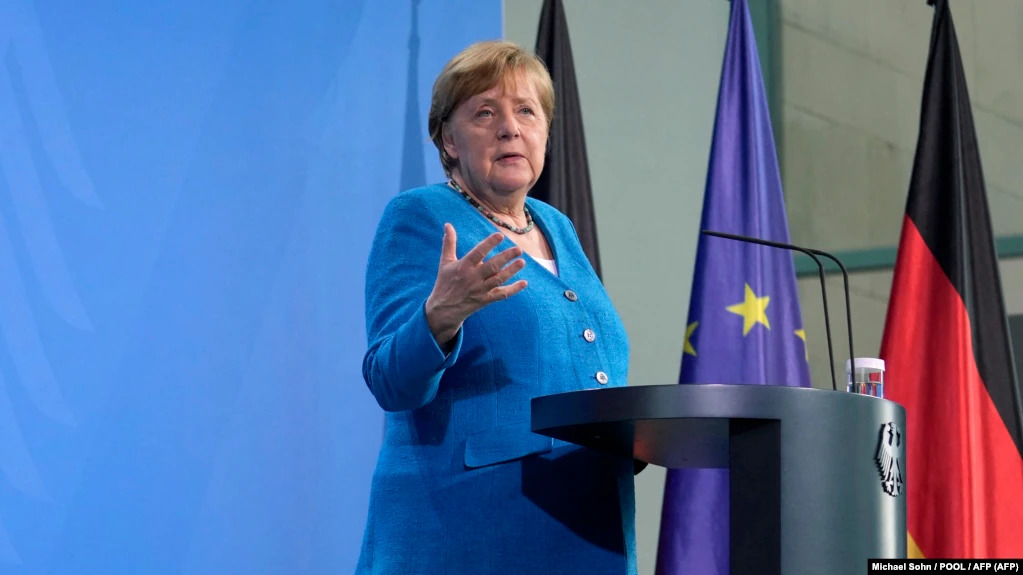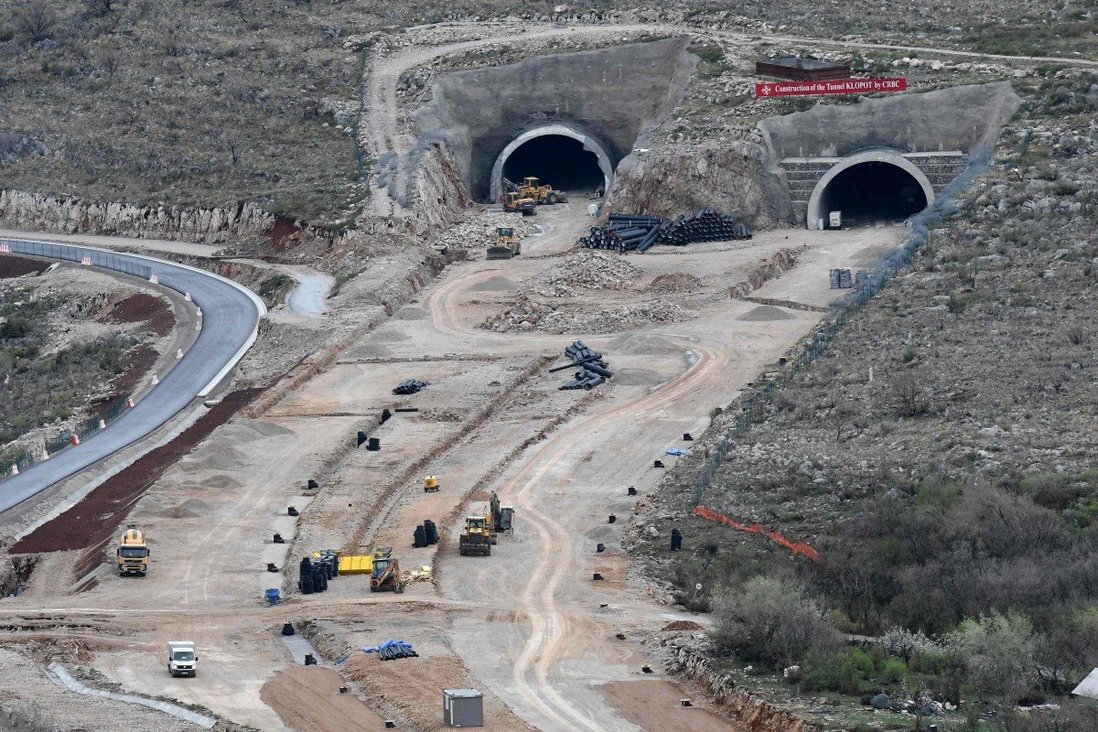Press Reviews
July 2021
International Media Digest
SLOVENIA ASSUMES THE EU PRESIDENCY,
PUSHES FOR EU ENLARGEMENT
Slovenia assumed the Presidency of the Council of the European Union on the 1st of July for the second time in its history since becoming a member of the European Union, amid hopes Ljubljana will boost the enlargement process.
Slovenia’s six-month programme presidency is based on four priorities, under the slogan “Together. Resilient. Europe.” Among them, Ljubljana said it would push for the enlargement of the EU to the Western Balkans, a process that has stalled. “In recent years, the strategy of the EU towards the Western Balkan was a wait-and-see-approach, with the bloc not being too active in the region vis-à-vis reform stalemate,” Slovenian Foreign Minister Anže Logar said. Logar noted that in the meantime “third parties entered the region (…) and this shows the vulnerability of the region for the EU; it is strategically dangerous.”
Things might change during the Slovenian semester, the Slovenian government suggested. “Special attention will be devoted to the Western Balkan countries, their future in Europe and the credible continuation of the EU enlargement process,” the government in Ljubljana said, adding that “we will strive for the economic recovery of countries in the region.” “To ensure sustainable development, we want to work with them to make the green and digital transition a reality, and improve connectivity within the region and with the European Union,” the programme of the Slovenian presidency reads.
One of the main events of the Slovenian presidency will be the EU-Western Balkan Summit, to be held in Slovenia in October. One of the main goals of the meeting will be to overcome the vetoes by EU members, among them Bulgaria, France, the Netherlands and Denmark, which are holding up the start of the negotiations with Tirana and Skopje. “Albania and North Macedonia can move forward by the next summit in October if we all concentrate on that,” said the Slovenian conservative PM Janez Jansa, very close to the populist and nationalistic positions of Hungary and Poland. The EU is not complete without enlargement to the whole of the Western Balkans, and the Union should speed up the accession process, Slovenian President Borut Pahor echoed.
CHINA AND RUSSIA FAIL TO ABOLISH OVERSEER IN BOSNIA
China and Russia tried unsuccessfully to end Bosnia’s international overseer, the High Representative for Bosnia and Herzegovina, who supervises the implementation of the peace agreements that brought the war to an end back in 1995, a move that provoked tensions with the Western powers and that might further exacerbate internal problems inside the Balkan country.
According to a draft UN resolution seen by The Associated Press, China and Russia considered that the powers given to the High Representative and his presence in Bosnia and Herzegovina “are no longer required, given the progress achieved by the Bosnian parties.” For this reason, the two powers requested the “closure of the Office of the High Representative” by the end of July 2022. Recently, the so-called Steering Board of the Peace Implementation Council (PIC), an international body that monitors Bosnia’s peace process, appointed the German Christian Schmidt as the next High Representative, following Valentin Inzko from Austria. Inzko stepped down after holding the post for 12 years. Schmidt is scheduled to take over the position on the 1st of August. The last move of Inzko was to impose harsh penalties against genocide deniers and the glorification of war criminals in Bosnia.
The move of China and Russia has pleased the Bosnian Serb leadership, which is very critical towards the Office of the High Representative (OHR). However, the Chinese and Russian attempts faced the opposition of Western powers, in particular the United States and several European countries, with the Security Council rejecting the resolution.
Further News and Views

Anti-elite party wins elections in Bulgaria
There Is Such a People (ITN), an anti-elite party led by a former TV entertainer, won the snap parliamentary elections in Bulgaria. ITN finished first with 24,0% of votes, while the GERB of former Prime Minister Boyko Borisov came second with 23,5%. Four other parties gained enough votes to enter parliament. The EU country voted for the second time in over three months after an inconclusive vote in April. The latest elections might fail again to resolve the political deadlock in Sofia. Bulgaria is vetoing the opening of accession talks with North Macedonia over disputes about the Macedonian language and history. Addressing the new Bulgarian Parliament, ITN party deputy leader Toshko Yordanov said that Sofia could have a government by the beginning of August.
Radio Free Europe, Balkan Insight

Prespa Forum, state of enlargement is negative
The current scenario around the enlargement process of the EU to the Western Balkans is mainly unfavourable, with possible long-term negative consequences for the entire region, experts and regional leaders participating at the Prespa Forum Dialogue suggested. “If the EU cannot make a difference in the region, it is telling about the problem the EU faces. The long-term consequence will be the weakening of those who believe in the transformative process of the enlargement and European values,” the Macedonian Deputy Prime Minister Nikola Dimitrov told at the event. “The region is in a bad condition, the enlargement is in a bad condition and the EU is in a bad condition,” Slovenian MEP Tanja Fajon noted.
European Western Balkans, Exit

The Western Balkans are a roaming free zone
Countries in the Balkans, with the support of the European Union and the facilitation of the Regional Cooperation Council, managed to take down one of the most expensive barriers for the region’s citizens. Since July 1, all roaming costs in the region were eliminated based on the so-called “Regional Roaming Agreement”, signed in 2019 by representatives of the six countries. The abolition of the roaming fees “is a historic achievement of cooperation,” the EU said. The next step will be a roadmap for reducing roaming charges between the EU and the Western Balkans.
Regional Cooperation Council, Radio Free Europe

Merkel, Balkans in the EU for “geostrategic reasons”
The region is still characterised by “light and shadow” after conflicts and crises, but nonetheless, its future is in Europe, German Chancellor Angela Merkel reiterated at a press conference after hosting the latest West Balkans summit in Berlin on July 5. “It is in the European Union’s interest to advance the process forward here,” the Chancellor added, noting that she is convinced that enlarging the European Union to the six Balkan countries still out from the group has significant “geostrategic reasons,” an implicit but yet explicit reference to the growing influence of China, Russia and Turkey in the area.
Radio Free Europe
Monthly Analysis
WESTERN BANKS HELP MONTENEGRO
TO ESCAPE FROM THE CHINESE ‘DEBT-TRAP’

In a move to counter China’s attempts to build influence in Montenegro and in the Balkans, Western banks have finally agreed to help the Montenegrin government in repaying a huge debt it has contracted with Beijing for the construction of a highway, connecting the port city of Bar to Serbia, which is being built by the state-owned China Road and Bridge Group as part of the so-called Belt and Road Initiative (BRI).
In 2014, Montenegro borrowed funds from the Chinese Exim Bank of China to build the first stretch of the motorway (a 41-kilometre portion), despite warnings of international institutions such as the World Bank and the International Monetary Fund, that deemed it commercially non-viable. In total, Podgorica borrowed around 1 billion euros from China to carry out the project and, as a result, China currently holds about one-quarter of Montenegro’s total debt, that is now beyond 100% of GDP in 2020. The growing Montenegrin debt raised concerns about the financial stability of the Balkan country, already a NATO member and the most advanced in the region in the process of EU integration.
In Spring, Montenegro officially pleaded for help to the European Commission, asking for assistance to settle the debt. The new deal with some Western banks, French and American, was “not a classic replacement” of the Chinese loan with the Exim Bank but effectively reduced interest rates from 2% to less than 1%, Montenegrin Finance Minister Milojko Spajic said, speaking of an “incredible success.” The US authorities praised the arrangement, while Beijing suggested to Washington to care about their own business, noting that the relations between China and Montenegro remain friendly. Furthermore, the Chinese embassy in Montenegro said that the project’s high cost was a reflection of the engineering challenges and the unfavourable geological conditions in the area.
Montenegro represents one of the clearest examples of the so-called “debt-trap diplomacy” China is using to extend its influence in the Balkans and beyond, by offering considerable funds to local authorities to build large infrastructure, with the risk of making the receiving countries economically and politically dependent from Beijing.
According to a research by the Center for Global Development, Montenegro is one of the countries that was bound to suffer from debt distress due to the BRI initiative, together with Djibouti, Kyrgyzstan, Laos, the Maldives, Mongolia, Pakistan, and Tajikistan, but also “in Belarus, Bosnia and Herzegovina, Ethiopia, and Kenya, there could be an increase in the risk of debt distress in the short-term due to BRI-related projects,” the Center said.
China is becoming one of the most active external actors in the Balkans in recent years, financing coal-fired power plants in Bosnia and Herzegovina, infrastructure projects in North Macedonia and industry, energy, transport and mine-related investments in Serbia, where President Aleksandar Vucic defined the friendship with China as “made of steel.” In Belgrade, the Chinese telecommunication giant Huawei built also a system of surveillance cameras that might be used in the future in other areas in the Balkans. “While Beijing supports EU accession of the region, its activities raised suspicion within the European Union that China may exploit its economic heft for political gains,” the Munich Security Conference warned back in 2019.
The Insight Angle

JAMES KER-LINDSAY
Visiting Professor
LSEE (London)
Slovenia assumed the EU presidency on the 1st of July. Do you expect some progress in the enlargement process during the Slovenian semester?
It has been really interesting to see how Slovenia has evolved since it joined the European Union in 2004. At first, it did everything it could to push away the Western Balkans. But it learned that one of the things that brought value to its EU membership was its link with the Balkans, its understanding of the region. Slovenia will certainly be interested in trying to push for Western Balkans enlargement. However, I don’t think we will see much movement. There is simply not a lot of political appetite for enlargement at the moment.
Formal negotiations with North Macedonia and Albania are still in standby. The accession progress of Serbia and Montenegro seems to have stalled. How do you read the current situation in the region?
After the name issue with Greece had been solved, everybody assumed that the EU door would be opened for North Macedonia. But now we have a problem with Bulgaria. And, frankly, it is a ridiculous dispute. Bulgaria is holding up the enlargement process over an ill-defined dispute over history. What makes this even worse is that it is also holding Albania hostage because the European Union, probably for good reasons, doesn’t want to separate the path of Albania and North Macedonia. Regarding Serbia and Montenegro, the situation is more complex. It is a mutually reinforcing vicious circle. The EU clearly shows that it is not interested in enlargement and so the pace of reform slows, which the EU then argues makes the countries less able to join anyway. So much of this is about positive messaging. If the EU shows it is really interested, I think that we would see better results.
Are you optimistic that a solution of the Kosovo question will be reached this year through the EU-led dialogue?
Not at all. We have seen the dialogue regress, not advance. I do not think that the European Union is handling the issue particularly well. It clearly lacks any real vision on how to reach a deal. And while it is good that Europeans and Americans are working more closely now on the Western Balkans, I just do not see any new thinking. Meanwhile, the new administration in Pristina has no realistic strategy. Its position seems to be that it might allow Serbia to recognise Kosovo if Belgrade gives it everything it wants. Meanwhile, Serbia’s position is also hardening. I was a lot more positive about finding a settlement ten years ago than I am today.
Western banks might help Montenegro to cope with the huge debt towards China. Do you think the ‘Chinese debt trap’ is a problem for the whole region?
This is a real concern, not only for the Western Balkans, but for the entire world. A few years ago, the then Enlargement Commissioner, Johannes Hahn, said that we overestimate Russia, and we underestimate China. I think he was absolutely right. The debt trap issue raises a lot of very serious concerns. But, again, so much of this is so obviously tied up with the EU’s inability to articulate an unambiguously positive message about the region’s European future. Even the right messaging can have a major impact.

Stefano Giantin
Journalist based in the Balkans since 2005, he covers Central- and Eastern Europe for a wide range of media outlets, including the Italian national news agency ANSA, and the dailies La Stampa and Il Piccolo.

